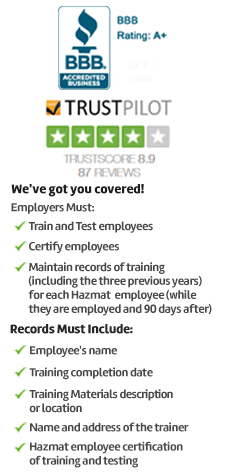
OSHA Outdoor Biological Hazards

Workers assigned to carry out outdoor responsibilities often face various environmental and physical hazards which can have long lasting impact on their health. This OSHA outdoor biological hazards online course trains students to have complete understanding on outdoor biological hazards such as vector-borne diseases which include Rocky Mountain spotted fever, West Nile Virus, Lyme disease and St. Louis encephalitis. The course also covers other possible risks caused by venomous wildlife and poisonous plants.
Participants will also get to understand relevant safety regulations, health hazards due to poisonous gases and chemicals, risk management procedures, personal protective gears and safety training processes.
Governing regulations
Under Section 5(a)(1) of the OSH Act, which is also known as the General Duty Clause, employers require to “provide every employee at the time of employment about the nature and place of the work, recognized hazards they will face while performing responsibilities and kinds of health problems or physical harm they are likely to get”. Whereas, Section 5(a)(2) compels each employer to “follow occupational safety and health standards as described under this Act”.
Course Overview
This online safety course provides an overview of all outdoor biological hazards caused by micro organisms like viruses and bacteria, harmful insects and plants, toxins and allergens exist in different work environments, applicable safety regulations, risk control measures and knowledge on personal protective gears. The course also covers proven safe and unsafe practices and how an employee stay away from recognized workplace hazards.
Who Must Take this Course?
All workers who are facing outdoor biological hazards as part of their job must take this course to improve their occupational health and safety awareness and also lessen the chance of becoming sick or getting injured.
Course Format
Our OSHA Outdoor Biological Hazards Training course has been formulated to have high quality content intertwined with graphical and audio presentations, case studies and good number of practical questions for students to have better understanding of the concepts before the final exam.
All successful candidates will be eligible to receive course completion certificate along with a printable wallet card.
Continuing education credits?
Students passing the exam after the successful training will receive 0.1 CEUs (or 1 CMEs) which they can mention in their professional profile.
Topics Covered
- what a biological hazard is
- how workers can be exposed to such hazards
- recognizing these hazards:
- microorganisms
- harmful plants
- insects and arachnids (e.g. spiders, ticks)
- snakes and other reptiles
- mammals
- animal parts (e.g. dander, feces)
- related terms including non-permit and permit spaces,
- hazard controls, including:
- engineering
- administrative/work practices and procedures
- Personal Protective Equipment (PPE)

 NEBOSH CERTIFICATE
NEBOSH CERTIFICATE NEBOSH DIPLOMA
NEBOSH DIPLOMA IOSH
IOSH SAFETY DIPLOMA
SAFETY DIPLOMA CPD UK
CPD UK ROSPA UK
ROSPA UK FOOD SAFETY
FOOD SAFETY 



